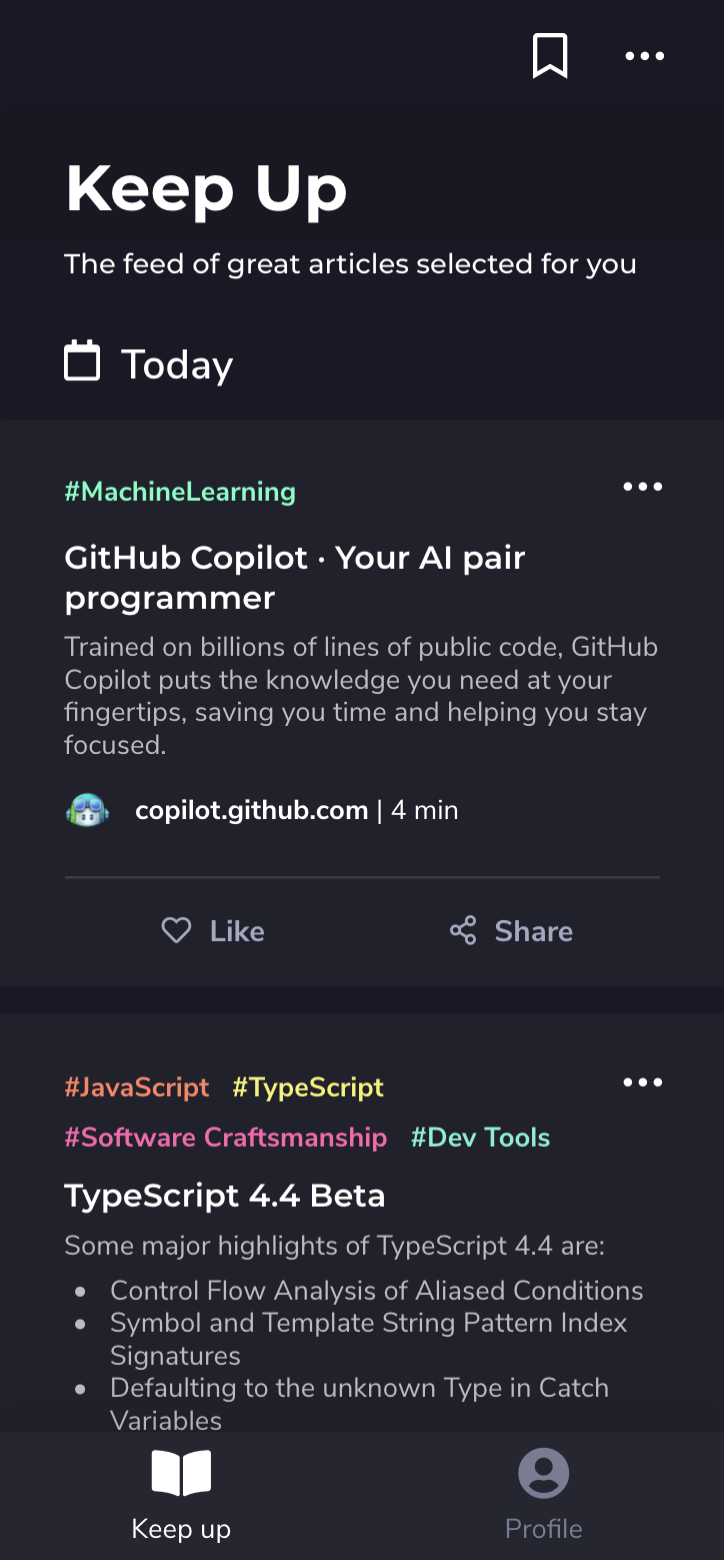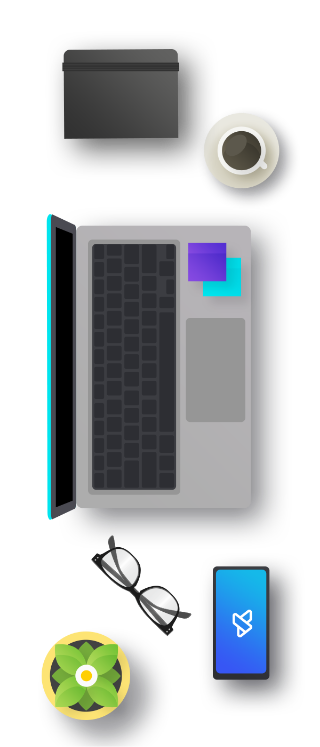Dr. Nesrine Changuel is a passionate and experienced product coach and advisor. For over a decade she held senior product management roles at Google, Spotify, and Microsoft. Let’s ask her some questions!
Dominika, Sphere.it: Nesrine, your journey through various innovative companies, from Skype to Spotify and Google, is truly remarkable. How did you navigate the transition between these organizations, and did your experiences carry over as you moved forward in your career? Also, we can’t help but ask this question – what is it like to work with all those glittery, bold organizations?
Nesrine Changuel: Switching jobs initially was mentally and physically challenging – leaving comfort for the unknown was scary but thrilling. Driven by curiosity and a desire to expand both knowledge and comfort zones, I embraced the change.
Success in change reaps rewards – broadening networks, skills, and learning new ways of working. However, successful change follows some rules. Firstly, it should align with a meaningful continuity, sticking within the same technology field or domain (like Skype, Spotify, Google Meet). This helps showcase the valuable knowledge you bring to the new company.
Secondly, a good start is crucial. I had the chance to prep for the first 60 days early in my career, using a book that helped me structure my initial quarter for success (building alliances, setting expectations with the manager, and building trust). Third, no job hopping. Whether at Nokia, Microsoft, Spotify, or now Google, I’ve never stayed less than 4 years. I believe that changing too quickly robs you of the full learning opportunity from each role.
Being a Google PM means building products for billions of users, a significant responsibility. Success requires staying sharp, collaborating with teams, engaging stakeholders, and diving into user interviews, data analysis, and experimentation. Mistakes happen, but the key is to recover quickly and learn. Google PMs embrace continuous learning, experiencing growth and exploring diverse product portfolios. In essence, the role is a challenging yet incredibly rewarding journey.
Dominika, Sphere.it: Your dedication to learning and teaching is evident in your speaking engagements and involvement in the product management community. Can you tell us more about how you developed your passion for teaching and why supporting others’ growth matters to you?
Nesrine Changuel: 15 years ago, as a researcher, my focus was on innovating and sharing within the research community, resulting in numerous papers and conference presentations. When I transitioned to a PM role, my reconnection to the community happened when my engineering school invited me to teach the PM role. The experience reignited my interest in sharing knowledge, leading to presentations at other universities and invitations to conferences. These events now play a crucial role in my strategic networking, knowledge expansion, and gaining recognition. Today, I am enjoying activities like teaching, podcasting, mentoring, and speaking engagements.
Helping others is personally fulfilling, offering a sense of satisfaction as you witness others’ growth. It enhances communication and leadership skills, expands networks, and opens doors to new opportunities. Mentoring fosters knowledge transfer, keeps me updated in my field, and brings fresh perspectives. Reciprocal learning occurs, enhancing job satisfaction and building a supportive professional community. Overall, helping others is a rewarding experience that contributes to personal and professional development.
Dominika, Sphere.it: Your evolution as a speaker has been quite notable, and we are lucky to have you as an opening keynote speaker at SpHERe.it Conference 2024, which we’re excited to partner with. Was public speaking always comfortable for you, or did you face challenges along the way? What have you learned about yourself and public speaking?
Nesrine Changuel: I used to speak at conferences a lot when I was a researcher, but when I switched to product management, I took a break for a few years. Getting back into it was a real challenge and stress fest. Then, along came COVID, and surprisingly, it turned out to be a blessing in disguise for my public speaking journey. My first speaking gigs after the long pause were at big remote events. That was a game-changer for me – all I had to do was focus on my content without worrying about the audience or the stage jitters.
When conferences shifted back to in-person, I got invited to speak on stage, and it was so straightforward after all that remote practice. Now, being on stage is the highlight of my year. The talks are not just rewarding during the speech but especially during the breaks when folks come over to share their thoughts and experiences. Being a speaker at a conference multiplies the networking perks compared to just being an attendee.
Dominika, Sphere.it: You’ve emphasized the importance of continuous learning and contributing to others’ growth in successful product careers. Do you believe that adopting a growth mindset, both personally and in terms of fostering others’ growth, is essential in product management? How does being part of a community foster genuine growth and learning?
Nesrine Changuel: A lot of folks wonder what is hard about Product Management. The complexity, the ambiguity, the leadership without authority?
In my early career, after 5 years as an IC, I became a PM. What disturbed the most as a PMs was to define my first team. While engineers often work in teams and designers often critique each other’s work, PMs have no consistent group that they feel part of.
I thought this was unique to me and my struggle to be vulnerable with people, but over time I learned that loneliness is a common part of the role.
Loneliness isn’t a good state for our mental health and can lead to burnout. It’s also hurting our career growth and pushing many PMs to pivot to another role. So I wanted to change it as quickly as possible.
There is no word for the opposite of loneliness, but if we did, I could say it’s just this feeling that there are people who are in this together. So what I did was to get closer to people who share my struggles or truly understand them. This concept is called community of practice (CoP). CoP is a group of people who share a concern or a passion for something they do and learn how to do it better as they interact regularly. I’m incredibly lucky to have been a part of several communities of practices at different phases of my life where I made real friends, helped me better define my career trajectory and feel more alive.
Dominika, Sphere.it: Delivering value in product management can take various forms, from features and processes to mindset cultivation. How do you define value, particularly in terms of team dynamics and iteration? Is value for you something democratic by its nature?
Nesrine Changuel: In product management, delivering value extends beyond tangible features or processes; it encompasses fostering a mindset that aligns with the team’s goals and iteration principles. Value, in the context of team dynamics, involves creating an environment where collaboration, communication, and innovation thrive. It’s about ensuring that each team member feels empowered to contribute their unique skills and perspectives, leading to collective success. Iteration, within this framework, is a mechanism for continuous improvement and adaptation. Value, in this context, is inherently democratic, as it involves acknowledging and incorporating the diverse contributions of team members. A democratic approach ensures that ideas are considered based on merit, fostering a culture of inclusivity and shared ownership in achieving the team’s objectives.
Dominika, Sphere.it: You often emphasize the significance of Product Delight in crafting a positive user experience. Could you delve into your thoughts on how to incorporate delight into the user experience when conceptualizing and designing a product? Specifically, what strategies or approaches do you find effective for achieving this, particularly in the fast-paced and ever-evolving landscape of the tech industry, where user expectations are constantly shifting?
Nesrine Changuel: Many product teams have a problem solution mindset, identifying users’ problems and needs and then build features that solve for the identified problems.That’s important, of course—but sustainable, lasting business growth means more than satisfying customers and meeting their expectations. Building delight into your product is what drives LASTING product-led growth.
This growth is achieved thanks to 2 important advantages: the emotional connection, and the word of mouth.
Customer delight happens when you exceed customers’ expectations by going above and beyond customer satisfaction in a way that encourages an emotional connection and sense of loyalty between your customers and your company. The other reason why successful companies invest in Delight is its impact on brand reputation and its impact on word of mouth. Emotional products are talked about, tweeted about, shared and possess extensive word-of-mouth generating viral growth.
I’m a firm believer in adding delight to the product development process, and I’ve had the privilege of creating delightful features that significantly contributed to the success of major products, including Spotify, Google Meet, and others. Building delight is no walk in the park – uncovering delightful features, deciding which ones to focus on, and gauging their success all pose significant challenges.
Dominika, Sphere.it: For mid-career product managers, what are one or two practical insights they can implement immediately to enhance their team’s refinement process or adopt a new mindset in their interactions?
Nesrine Changuel: There isn’t a perfect process, but I’d like to share effective techniques. Start with a clear discovery roadmap focused on user problems, not solutions. Spend energy validating and identifying these problems. Prioritize validating value through regular user research and early prototypes, working closely with UXR, designers, and engineers. Ensure the entire process is iterative, evaluating early hypotheses with each iteration using data to assess user behavior and cross-check with UXR inputs. Understand the gap between what users want and what they actually do. Highlight the importance of prioritizing delightful features in your roadmap, as they strongly correlate with product engagement, as seen in successful products like Discover Weekly in Spotify or password management in Google Chrome. It’s not just a process but a mindset for PMs to build products users will use and love.
Dominika, Sphere.it: And lastly, can you share some practical techniques or tips from your product management experience that have been effective in building successful products? Or simply give us a sneak peek into your keynote session titled ‘The Growth Path: Tips to build your own success story,’ which you’ll be delivering at the spHERe.it Conference 2024?
Nesrine Changuel: I am honored to be sharing at spHERe.it Conference 2024. My goal is to share the pivotal lessons that have been instrumental in shaping my career, especially as a woman navigating the dynamic landscape of the tech industry. These lessons, forged through personal experiences, have been the compass guiding me towards both personal and professional growth.
Firstly, treat your career like a project, employing strategic planning and continuous evaluation for intentional and purposeful progress. Embrace the transformative power of a growth mindset, fostering constant learning and resilience in the dynamic tech world. Master the art of negotiation to advocate for your worth and navigate career advancements effectively. Recognize the unique value in every job opportunity for skill set enhancement. Share your knowledge to contribute to others’ growth while deepening your own expertise. Prioritize personal happiness as a strategic choice fueling productivity and long-term success. Lastly, emphasize the transformative impact of cultivating relationships with mentors and peers who uplift and inspire, playing a pivotal role in your journey.


